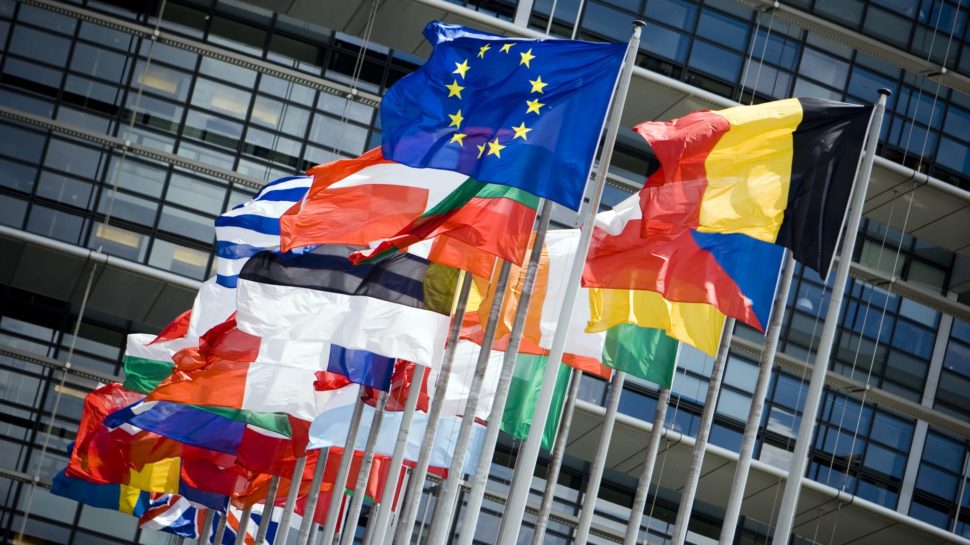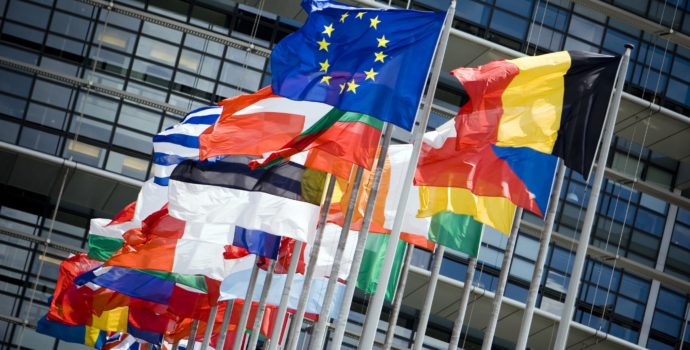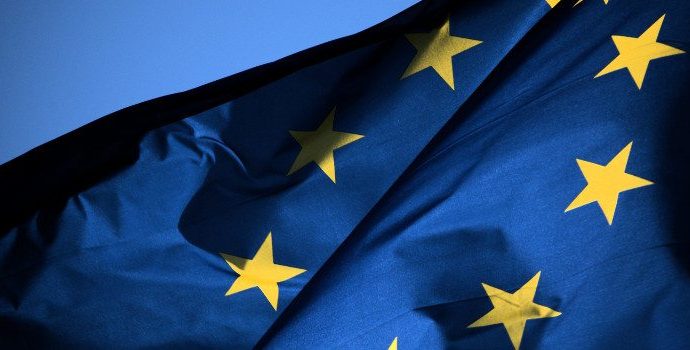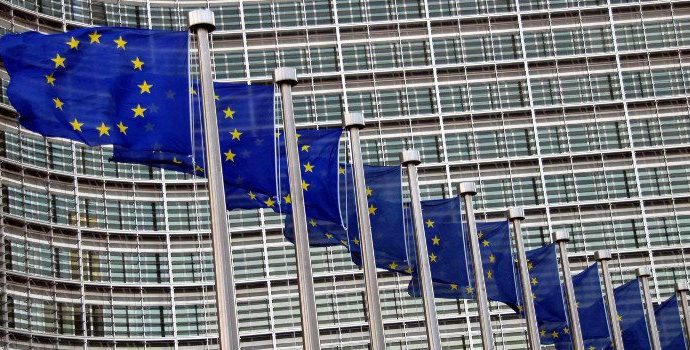European Commission Daily News 7th July

Summer 2021 economic forecast: reopening fuels recovery
According to interim economic forecasts for summer 2021, the economy of the EU and the euro area is expected to grow by 4.8% this year and 4.5% in 2022. The European economy is expected to rebound unabated. slightly faster than previously expected, given that in the first quarter of the year, activity exceeded expectations and in the second quarter, the improvement in the health situation led to a more rapid relaxation of restrictions on to fight against the pandemic. Private consumption and investment are expected to be the main engines of growth, supported by employment which is expected to evolve in line with economic activity. The strong growth of the economies of the main trading partners of the EU should be beneficial for exports of European goods, while exports of services should suffer from the constraints that persist for international tourism. The Recovery and Resilience Facility (FRR) is expected to make a significant contribution to growth. The total wealth generated by the FRR over the forecast period would be around 1.2% of EU real GDP in 2019. The forecast for the boost it will give to growth remains broadly unchanged compared to previous ones; Indeed, the information drawn from the recovery and resilience plans officially presented in recent months largely confirms the assessment carried out in the spring. A while service exports are expected to suffer from the constraints that persist for international tourism. The Recovery and Resilience Facility (FRR) is expected to make a significant contribution to growth. The total wealth generated by the FRR over the forecast period would be around 1.2% of EU real GDP in 2019. The forecast for the boost it will give to growth remains broadly unchanged compared to previous ones; Indeed, the information drawn from the recovery and resilience plans officially presented in recent months largely confirms the assessment carried out in the spring. A while service exports are expected to suffer from the constraints that persist for international tourism. The Recovery and Resilience Facility (FRR) is expected to make a significant contribution to growth. The total wealth generated by the FRR over the forecast period would be around 1.2% of EU real GDP in 2019. The forecast for the boost it will give to growth remains broadly unchanged compared to previous ones; Indeed, the information drawn from the recovery and resilience plans officially presented in recent months largely confirms the assessment carried out in the spring. A The Recovery and Resilience Facility (FRR) is expected to make a significant contribution to growth. The total wealth generated by the FRR over the forecast period would be around 1.2% of EU real GDP in 2019. The forecast for the boost it will give to growth remains broadly unchanged compared to previous ones; Indeed, the information drawn from the recovery and resilience plans officially presented in recent months largely confirms the assessment carried out in the spring. A The Recovery and Resilience Facility (FRR) is expected to make a significant contribution to growth. The total wealth generated by the FRR over the forecast period would be around 1.2% of EU real GDP in 2019. The forecast for the boost it will give to growth remains broadly unchanged compared to previous ones; Indeed, the information drawn from the recovery and resilience plans officially presented in recent months largely confirms the assessment carried out in the spring. A it will give growth remain broadly unchanged compared to the previous ones; Indeed, the information drawn from the recovery and resilience plans officially presented in recent months largely confirms the assessment carried out in the spring. A it will give growth remain broadly unchanged compared to the previous ones; Indeed, the information drawn from the recovery and resilience plans officially presented in recent months largely confirms the assessment carried out in the spring. A press release and economic forecasts for summer 2021 are available online.
European Maritime, Fisheries and Aquaculture Fund to support sustainable oceans approved
The Regulation establishing the European Maritime, Fisheries and Aquaculture Fund (EMFAF) under the EU’s 2021-2027 long-term budget was adopted yesterday by the European Parliament with an overwhelming majority. The adoption follows a political agreement reached with the Council at the end of 2020. With a total budget of €6,108 billion (2021-2027), the EMFAF will provide financial support to protect, manage and sustainably use the ocean and its resources contributing thus to the objectives of the European Green Deal. This is key to promoting biodiversity, the supply of healthy and sustainable seafood, including from aquaculture, the competitiveness of the blue economy and thriving coastal communities in the EU. Virginijus Sinkevičius, Commissioner for environment, oceans and fisheries said: “I welcome this vote by the European Parliament. The new fund enters into force at an important juncture. The coming years will be crucial for our efforts to making EU fisheries still more sustainable, while securing the livelihoods of our fishermen and women. The EMFAF will also enable us to support the green recovery of Europe’s blue economy and underpin EU’s leading role in promoting sustainable ocean governance worldwide. I now call on Member States to finalise their national programmes as a priority, so together we can continue delivering on our shared commitment to a healthier ocean.” Member States are expected to finalise their programmes in the coming months, to ensure that the funds can be put to work as soon as possible. More information is in the news item.
Competition: European Commission publishes 2020 Report on Competition Policy
The European Commission has published today a Report on Competition Policy for 2020, presenting the key policy and legislative initiatives undertaken last year, as well as a selection of decisions adopted. In 2020, EU competition policy significantly contributed to the Commission’s efforts to respond to the coronavirus outbreak, both in terms of the healthcare emergency, as well as on its impact on the livelihoods of citizens. The State aid Temporary Framework, adopted at the beginning of the crisis, has enabled Member States to use the full flexibility foreseen under State aid rules to support the economy in the context of the coronavirus pandemic. In the area of Antitrust, the Commission published a Communication providing guidance to companies cooperating on projects aimed at addressing supply shortages of essential coronavirus-relevant products and services, such as medicines and medical equipment. Furthermore, despite the challenges brought forward by the changed working conditions, in 2020, the Commission took several decisions in this field, among which 3 cartel decisions and 5 antitrust ones. It has also launched an antitrust inquiry into the sector of Internet of Things (IoT) for consumer-related products and services in the EU. Also in the area of merger control, the Commission adopted over 350 merger decisions and intervened in 18 cases (including 13 mergers cleared subject to commitments in first phase and 3 cleared with remedies after a second phase). The Commission also adopted a proposal for a Digital Markets Act to addresses the negative consequences arising from certain behaviours by platforms acting as digital ‘gatekeepers’ to the single market, and published White Paper, to develop tools and policies to better tackle the distortive effects of foreign subsidies in the internal market. The full text of the Report (available in EN, FR, and DE and other languages) and the accompanying staff working document (available in EN) are available here.
Read the European Commission daily news in full here.




